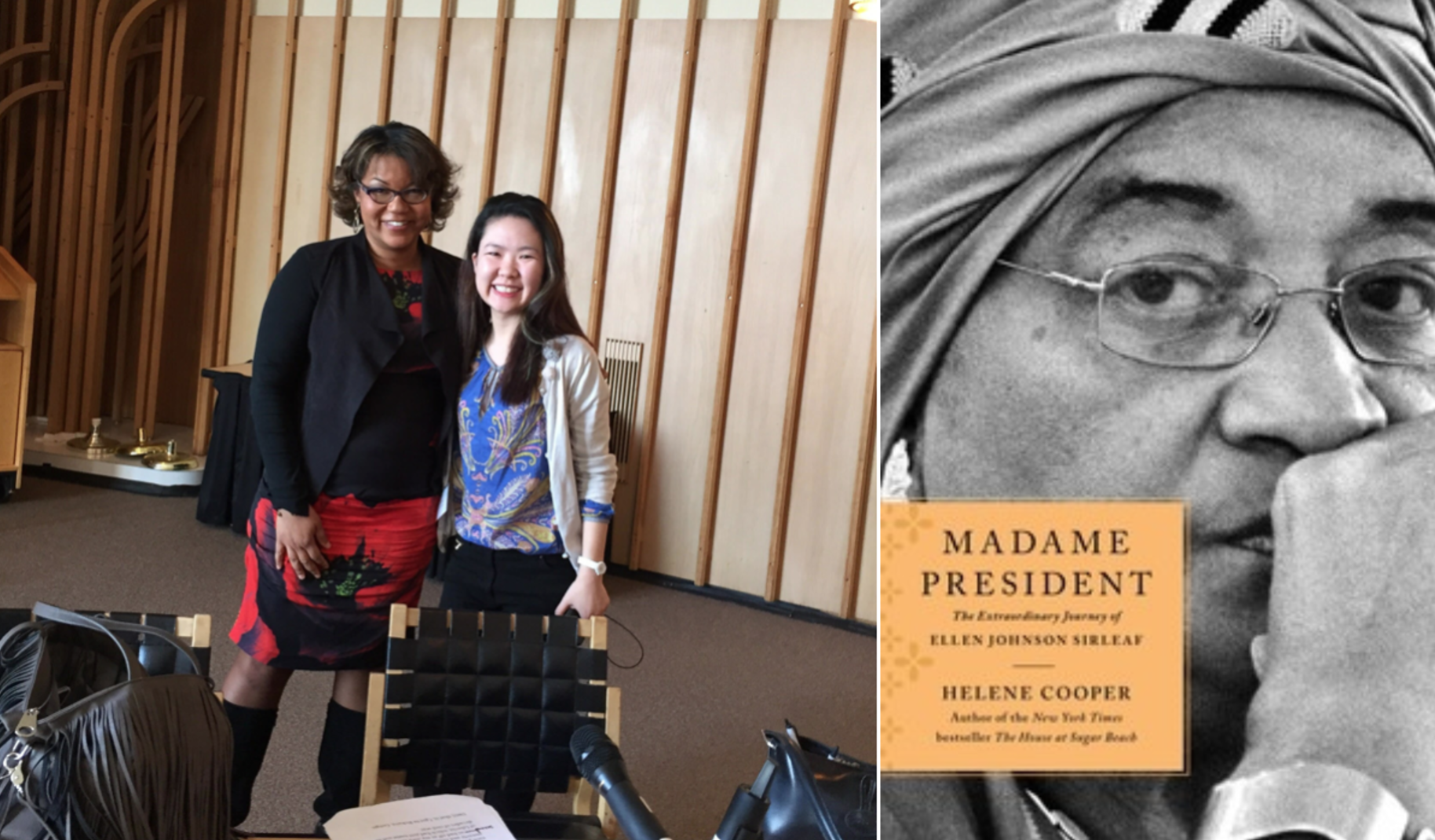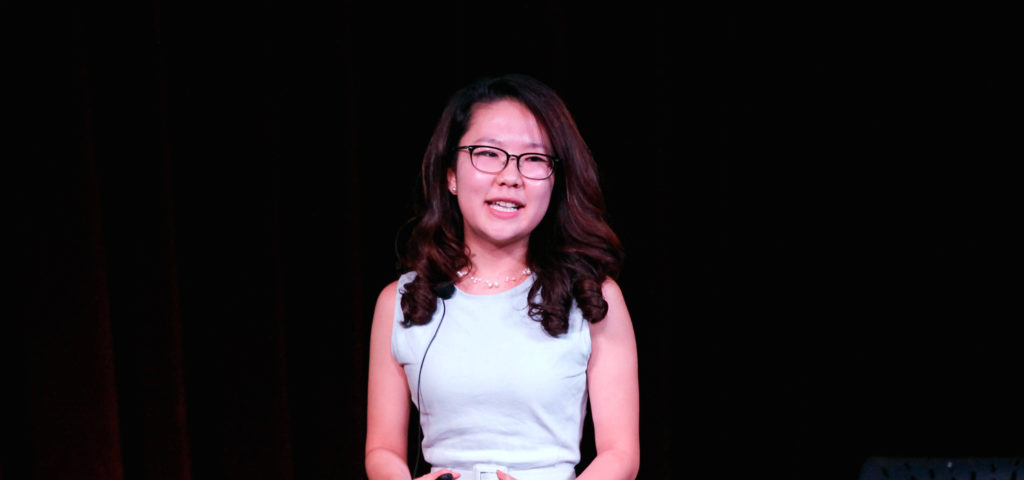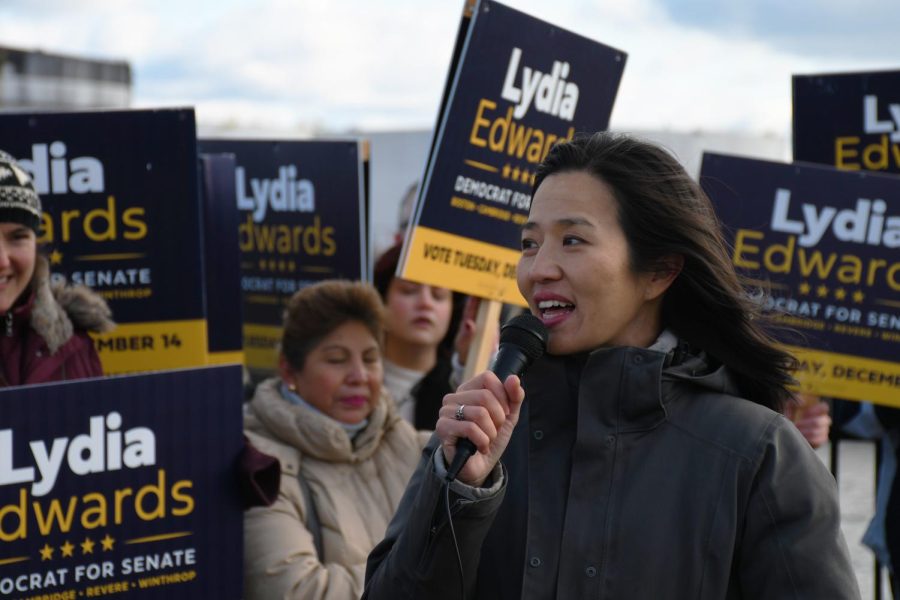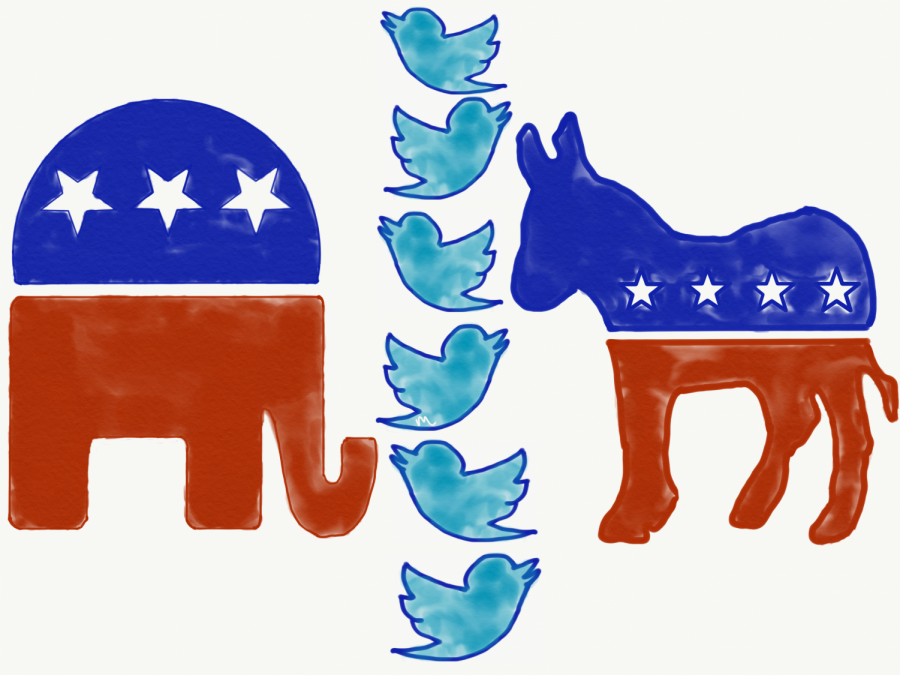By Connie E, editorial columnist
What does it mean to be a woman in Africa? Traditionally, it meant laboring: To raise children and provide for the family with little glory or reward, let alone the opportunity to pursue education, or to lead a major institution or even a nation. The last one was unheard of before Ellen Johnson Sirleaf became the first female president of Liberia.
I recently attended a talk given by Helene Cooper, Pulitzer Prize-winning Pentagon correspondent for The New York Times and author of “Madame President: The Extraordinary Journey of Ellen Johnson Sirleaf,” who spoke about her writing process and the role of women in politics.

President Sirleaf is an unlikely trailblazer who survived domestic abuse, war and political imprisonment to finally get elected president on the surprise strength of women’s votes. When it comes to female political leadership in Africa, Leymah Gbowee is usually mentioned alongside Sirleaf for being jointly awarded the Nobel Peace Prize and for leading the women’s peace movement in Liberia. I was fortunate enough to have also heard from and attended a non-violent communication workshop given by Leymah Gbowee when she visited Northeastern.
While listening to Cooper’s reading, I couldn’t help but wonder what those three female leaders have in common, and what other women (and men!) can take away from their stories?
There are three points of inspiration that I packed away from Cooper’s talk, with the hope that Sirleaf’s story can illuminate paths for other aspiring young women who are still in search of their own beacon of light.
The first point is the value of education in making one indispensable. Sirleaf knew that from the beginning. Like the Liberian market women who left their stalls where they sold fish and kola nuts to campaign and vote for their country’s first female president, Sirleaf was stalwart and determined. She earned a degree from Harvard Kennedy School and succeeded in the world of international finance. Her expertise is what made her stand out and eventually become indispensable not just as a woman, but a politician, leader and decision-maker in her own right.
Surprisingly (or unsurprisingly), this is also the advice I oftentimes hear from mentors and female leaders in the field of business, finance, journalism, foreign policy and beyond. Let’s admit it, gender stereotyping and disparity are still prevalent even in developed countries: Men continue to hold most of the top positions in corporate America—that is, 96 percent of the S&P 500 CEO slots and 99 percent in Silicon Valley, according to Fortune. But what women can do in the face of this unlevel playing field is to be so good at what she is doing that no one else can replace her. True equality is when a woman is appointed to a certain position for her mind, not her gender or body.
The second takeaway is that we must have the ability to have a long-term vision without being afraid to make sacrifices for it. As a mother of four boys, Sirleaf had to balance family obligations with her career obligations. The divorce from her husband in 1960 didn’t shake her determination to run for office one day. Rather, she made a difficult decision of leaving her children and pursuing a master’s degree in the United States.
We can only imagine how much external pressure Sirleaf must have faced when she made that decision because women are somehow supposed to bring up the children while their husbands can take home the glorious title of breadwinner. Whether it’s in Liberia or the United States, it takes incredible strength, clarity and resilience to be able to stay focused on one’s pursuit amid all the social conventions around women.
The final piece of wisdom is the importance of galvanizing and rallying other women around you. Sirleaf’s electoral victory wasn’t her personal victory, it was the collective voice of millions of women who rallied behind Sirleaf and she was well aware of that.
Having a support network and mentorship from other women is crucial. Sometimes it is hard and lonely to be the only female panelist, board member or decision maker in the C-suite, but just knowing that you are not in this by yourself is incredibly comforting and empowering. This is why some trailblazing women such as Sheryl Sandberg, Emma Watson and Tina Brown have created initiatives like Lean In, Feminist Book Club and She-Suite with the intention of paying it forward.
As an iconic figure who won the Nobel Peace Prize as well as the presidency, while also being a survivor of imprisonment and victim of domestic violence, Sirleaf has lived an expansive life that is hard to cover in a few hundred pages. So are the stories and wisdoms about female leadership. Regardless of one’s age, profession or culture, Sirleaf’s story taught us that winning women are in control of their destiny.















